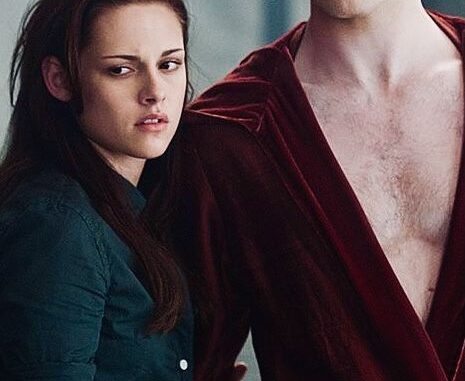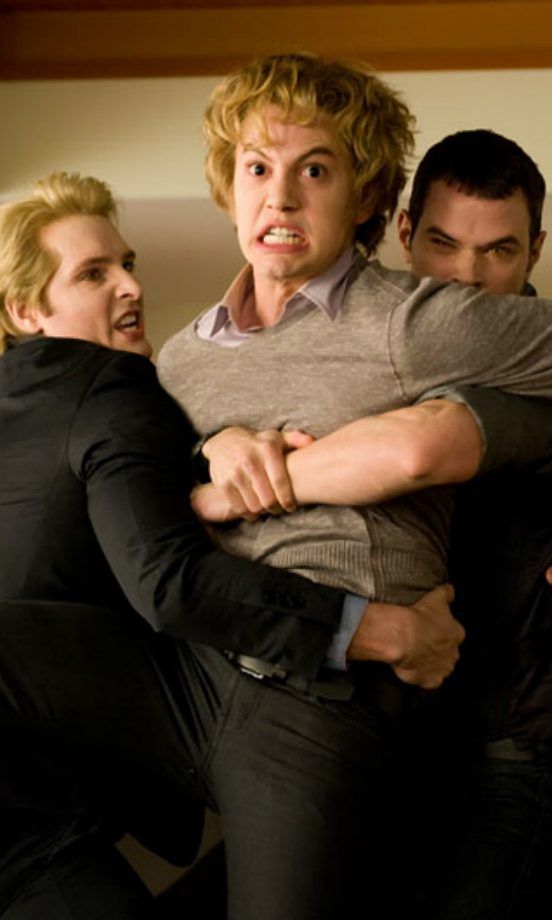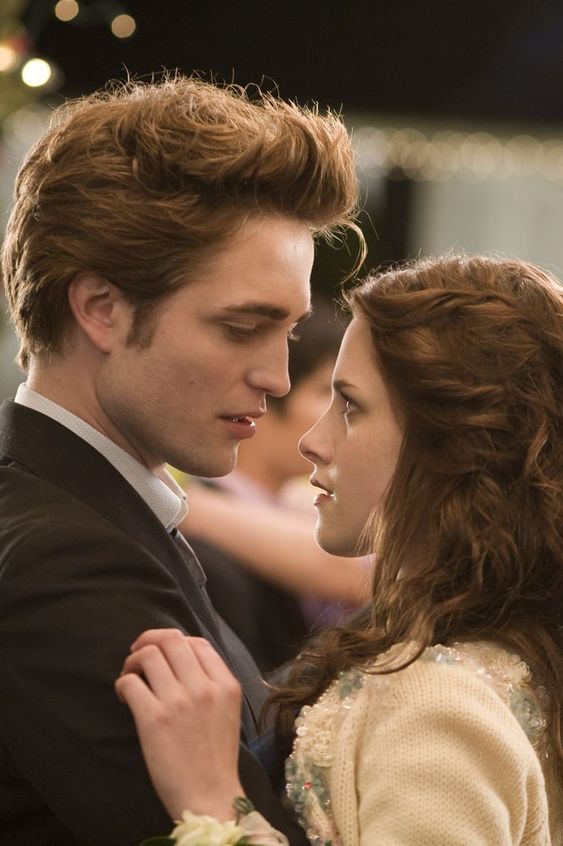
Often viewed as a blight upon both literacy and cinema, the Twilight franchise isn’t nearly as terrible in retrospect–though some criticisms hold up.
The first Twilight movie was released 14 years ago, and some criticisms of the movie have grown outdated, while others hold up. It remains incredibly difficult to name a more divisive franchise. Since the first film’s 2008 release, the franchise has been labeled everything from the greatest love story ever told to a blight upon popular culture. While these films, and the books they’re based on, are hardly groundbreaking, nuanced, or even necessarily healthy, in retrospect, the level of vitriol lobbed at them seems more than a little unfair.
Twilight utilizes common tropes found in a number of other movies, books, and shows that continue to dwarf the franchise in popularity. The Twilight films themselves take much-needed liberties with their source material. Many critics now consider the first film in the franchise to be competently made – if unbelievably silly – and a resurgence of the franchise during the 2020 pandemic allowed even Twilight’s harshest critics to re-examine the movies: not as harmful, cinematic travesties but as benign and genuine fun. Still, the franchise is not without its problems; here are five criticisms of Twilight that no longer hold up, and five that absolutely do.
10 DON’T: Edward Shouldn’t Be Pursuing A Teenager
In a vacuum, this statement is accurate. However, many fictional beings — some several centuries old — have found themselves romantically drawn to much younger humans. This is an especially common trope in vampire media. Teenage Elena Gilbert of The Vampire Diaries franchise was caught in a love triangle with vampiric brothers Damon and Stefan Salvatore for the majority of the series’ run. Buffy the Vampire Slayer remains a cultural juggernaut despite its sincere — and still very much beloved — depiction of romance between the 16-year-old Buffy and her first love, the 240-year-old Angel.
9 DON’T: Sparkly Predators Make No Sense
For lovers of traditional vampire lore, none was a bigger point of contention than the uniquely sparkly skin found in the Twilight universe. At the height of both Twilight’s popularity and its contempt, this aspect of the saga became the subject of memes, countless parodies, and even anti-queer rhetoric. However, the modern landscape has been far kinder to this distinctive aspect of Stephenie Meyer’s universe: some praise its originality, while a popular Twilight fan theory re-imagines the Cullens as Fey.
8 DON’T: Twilight is Corrupting the Youth
Twilight has long been criticized for its more problematic elements. In its heyday, the franchise drew ire from Christian groups, concerned moms, and everyone in between. Non-fans worried that a story so singularly focused on romantic entanglements with questionable, “over-protective,” and domineering boys would drive teenage girls into unhealthy relationships. But, there is no such criticism of the equally unhealthy media of the day — notably Michael Bay’s Transformers, and the Fast and the Furious franchise — targeted towards teenage boys. Of this phenomenon, screenwriter Melissa Rosenberg told IndieWire in 2012: “It’s also because it’s female, it’s worthy of contempt. Because it feels female, it is less than. And that is simply a reflection of our society.”
7 DON’T: The Cullens Aren’t Interesting Characters
While Bella and Edward rightfully draw criticism for lacking interests, personality, or lives outside each other, the rest of the Cullen family differs. Though the Twilight movies don’t delve much more deeply into their respective backstories, each one has a fascinating story in their own right. From Alice’s stay in a 1920s phychiatric facility to noble surgeon Carlisle’s struggle with fending off his desire for human blood. Edward’s sister Rosalie, as well as jilted werewolf Leah, remain unironic fan favorites for their obvious physical and emotional strengths.
6 DON’T: Kristen Stewart Can’t Act
A film franchise is only as strong as its lead character, and at the height of Twilight’s popularity, Kristen Stewart was not well-liked. Critics and audiences alike seemed to be bothered by Stewart’s portrayal of Bella Swan, citing her odd mannerisms and flat affect as evidence of the actress’ ineptitude. In recent years, however, Stewart has shed this reputation, proving herself to be a tremendous talent in films such as Camp X-Ray (2014), Seberg (2019), and Spencer (2021), among others.
5 DO: Jacob Imprinting on Renesmee is Creepy
When it comes to Twilight, one thing long-time fans and critics can agree on is the disturbing werewolf lore. Positioned for much of the series as Edward’s romantic rival, Jacob Black’s story takes a truly bizarre turn by the end of the series. As Bella’s choice became undeniable, fans began to wonder whether Jacob would ever find his fated soulmate, only to be shocked and horrified when the werewolf set his sights on Bella’s newborn daughter, Renesmee. The in-universe explanation doesn’t much ease the discomfort, as the notion of a grown-up Jacob providing for, protecting, and befriending the child until she “comes of age,” sounds ripped straight out of a horror novel.
4 DO: Both Edward and Jacob Display Abusive Tendencies
The most popular criticism of Twilight has undeniably stood the test of time. Edward frequently made life-altering decisions for Bella concerning their relationship, marital status, pregnancy, and even her relationships with others. Jacob didn’t fare much better, constantly undermining Bella’s choices, employing emotional manipulation, and even kissing her without her consent. While Twilight may not have been the blight upon society that its harshest critics claim, in retrospect, much of the saga is horribly unpleasant.
3 DO: The Lack of Representation is Hard to Ignore
Twilight’s lack of non-white characters was an issue the films sought to remedy. Unfortunately, not unlike her desire to see Henry Cavill in the role of Edward, Stephenie Meyer took issue with Kenyan-American actor, Edi Gathegi in the role of Laurent, initially picturing John Stamos as the evil vampire. The casting of Taylor Lautner as Jacob has also drawn controversy, as the actor has predominantly white ancestry, claiming “distant” native ancestry on his mother’s side. The struggles of the real-life Quileute tribe have not gone unnoticed either, having never received royalties from the successful franchise, despite its use of both their name and notable aspects of their culture.
2 DO: The Characters Lack Personality
Twilight, first and foremost, is a love story. That said, neither Bella nor Edward stand out as particularly interesting characters. Throughout the five-film saga, neither half of the couple displays a unique personality, believable chemistry, or tangible reasons for loving one another. In order to make the culmination of their love story – be it their wedding, the birth of their child, or the last Twilight film’s final scene – satisfying to watch, these elements must be included.
1 DO: The Story Lacks Any Real Conflict
For a story that touts itself as one of forbidden love, the Twilight saga seems to lack any tension. Every potential conflict in the five-film series is either resolved much too quickly, or arrives much too late to build much-needed suspense. The final film in the series, Breaking Dawn Part II, illustrates this brilliantly with the reveal that its epic final battle — loaded with all the action, suspense, and stakes the series previously lacked — was merely a narrowly avoided future.
